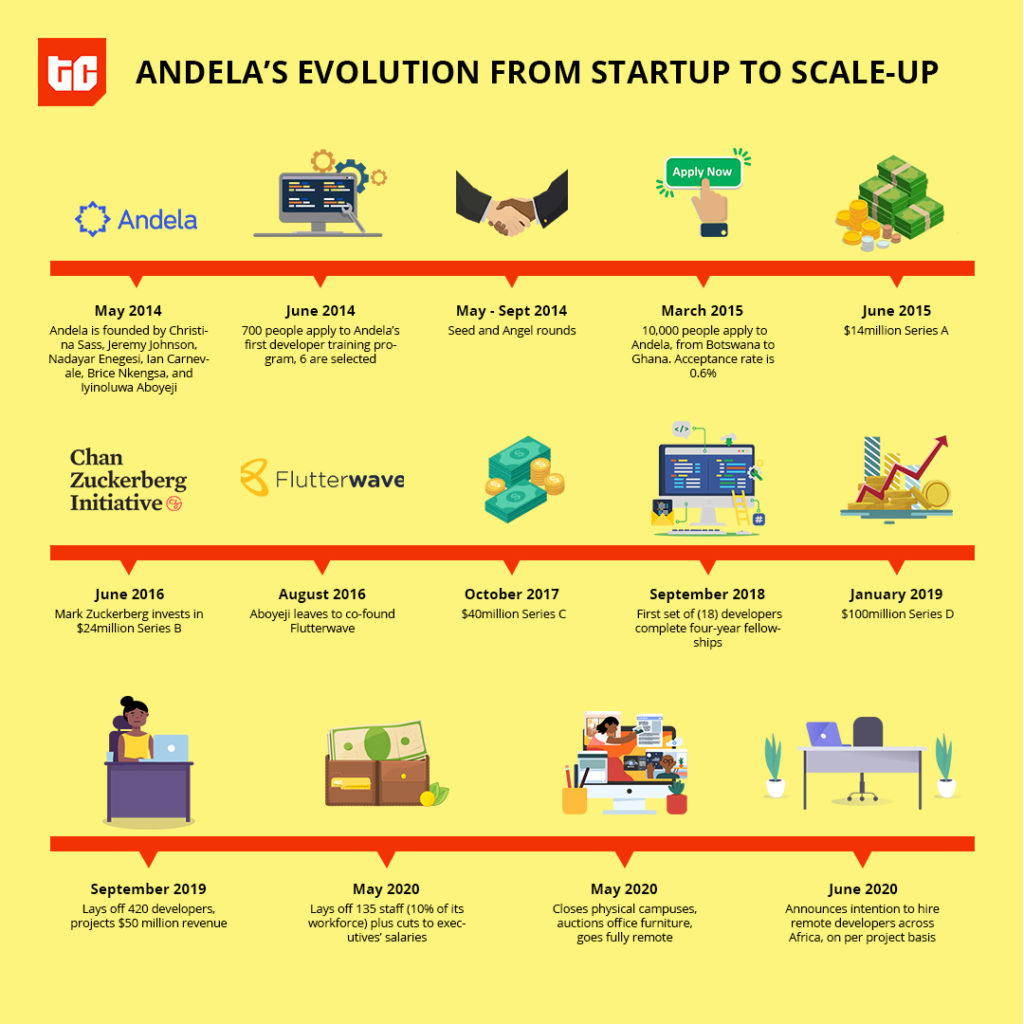As one of the companies that changed perceptions of Africa’s capacity for a digital economy, Andela is frequently in the spotlight.
There’s an argument about how it has hit its peak for excitement and innovation, owing to the internal changes of the past year. In a revealing report by a US journalist late last week, we learn that some past and present staff are supposedly disillusioned on account of the company’s redefinition of purpose.
Omowale David-Ashiru, Andela’s VP for Global Operations, isn’t oblivious to the perception that Andela has moved on a bit from what it was when founded in 2014. But she affirms that the core mission is on track.
“The problem we are trying to solve hasn’t changed,” she says on TechCabal Live, TechCabal’s live interview series with industry leaders about building in tough times.
David-Ashiru explained that Andela started off on the premise of an existing demand in developed North American tech economies for software engineering talent. Those needs continue to exist in 2020, she says, and the company has only changed its strategy for fulfilling that founding thesis.
“As a business, how you get to your North Star definitely will always change. Even as an individual if you are the same as you were five years ago, then you haven’t grown,” she says.
Andela’s most recent change, announced last week, was to open its application portal to software developers from all African countries. The company went fully remote in May, closing its physical offices in Lagos, Kampala, Kigali and Nairobi.
Those decisions were not made overnight as linear consequences of the coronavirus pandemic and the physical limitations it placed on workplaces – Andela was always a significantly remote-work company since 2014. They were the big bangs of incremental tweaks that began early 2019, in the period following a $100 million Series D round.
“You start a business because you are trying to meet your customers’ needs. As a responsible business, you must always listen to your customers,” David-Ashiru says.

In Andela’s case, the demand for remote and distributed junior software engineers had declined in the customers they served. The presence of more software training institutions and bootcamps around the world overtime has raised the bar, creating a surplus of junior talent and more demand in the senior category, she says.
Though with social impact at its core, Andela had to function as the for-profit business that it is, being accountable to investors as well. Ultimately, investing $20,000 in training a developer without gaining revenue from them wasn’t going to be sustainable.
These concerns are also connected to Andela’s status as a venture-backed company. After laying off 135 developers in May, CEO Jeremy Johnson alluded to a need for fiscal prudence in order to be a continuously fundable business.
“At the end of the day, VCs invest in you because you are a business that says you are going to do something for customers and make money,” David-Ashiru says.
Under its new structure, Andela is aiming to have better product-market fit by iterating based on customer demands. As with any other business, they are figuring out how to produce the best quality possible from their production.
To preserve its reputation for quality, Andela’s talent onboarding of new hires will be shaped by existing standards. David-Ashiru expresses strong displeasure with a perception that Andela is a “plantation” that extracts productivity without due remuneration.
A former strategist at Accenture, the management consulting firm, David-Ashiru knows enough about navigating companies of various sizes through crises. Before joining Andela, first as the Nigeria country manager in 2018, she ran her startup – a retail store for maternity services – for eight years.
Crisis mode calls for pruning perks and focusing on core essentials, she says. Businesses who want to survive will have to do more than hope for better tides, taking bold steps to commit to difficult tasks.
Keen attention to cash, capital, costs and customers are crucial at all times. But this is more indispensable during periods of shocks like the current pandemic moment.
Amidst this concern for survival, David-Ashiru doesn’t see the need for panic as uncertainty will always be a challenge in a company’s life cycle. For Andela, the future is still being figured out, on the foundation of ensuring value creation for customers and a productive environment for developers.
Find past videos of TechCabal Live featuring Odunayo Eweniyi, Sim Shagaya, Eghosa Omoigui and Bosun Tijani on our YouTube page.





















